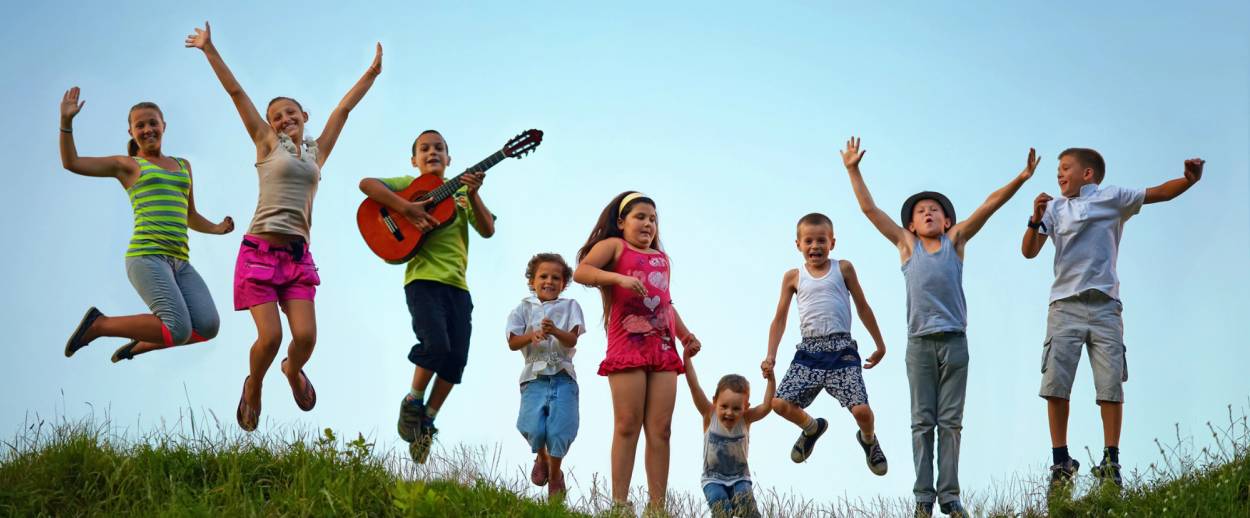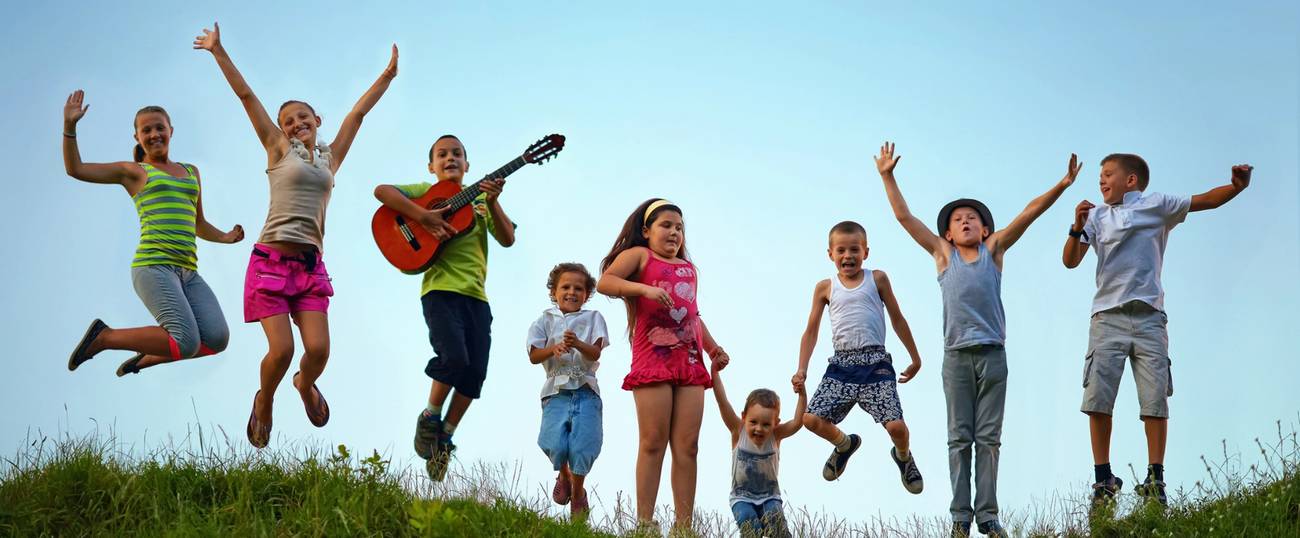Sending My Kids to Jewish Sleepaway Camp Is the Best Investment I’ve Ever Made
A new report details the factors that impact success in young adults




The University of Chicago’s Consortium on Chicago School Research released a report yesterday called “Foundations for Young Adult Success: A Developmental Framework,” which discusses the key factors that lead to success from early childhood through adolescence. The report, which you can read in its entirety here, synthesizes hundreds of studies in the fields of youth development, psychology, sociology, and education; it also incorporates interviews with practitioners in the fields of education, psychology, and social services. One of the report’s conclusions is that academic skills aren’t enough to turn kids into successful adults. In addition, what kids need are “rich experiences combining action and reflection,” which “help children develop a set of critical skills, attitudes, and behaviors.”
Just so you know where I’m coming from, I read this document through the lens of someone who dropped her older daughter at overnight camp yesterday, and will drop off her younger daughter tomorrow. Please picture me in a semi-forlorn, empty-nest-y “Sunrise, Sunset” kind of place. Perhaps my sentimental melancholy explains why the report’s conclusions about what kids need “to succeed in college and career, have healthy relationships, be engaged citizens, and make wise choices,” have made me reflect that other than reading to my kids, Jewish sleepaway camp has been the best investment I’ve made as a parent.
The report singles out three key factors and four “foundational components” necessary for kids’ success in life. The three key factors are agency (the ability to make choices about one’s life path, rather than solely being the product of one’s circumstances), integrated identity (a sense of internal consistency about who one is), and competencies (abilities such as critical thinking, good decision-making, and the ability to work collaboratively). These factors let kids be productive and engaged in a variety of contexts. The four foundational components are self-regulation (being able to manage one’s attention, emotions, and behaviors in goal-directed ways, along with having self-control and being aware of oneself and one’s surroundings); knowledge and skills; mindsets (beliefs about oneself and the world); and values (enduring, often culturally defined beliefs about what is good and bad).
Jewish overnight camp has been instrumental in helping my kids develop all seven of these aspects of self. Josie and Maxine started attending camp during what the report calls “middle childhood” (ages 6-10). That’s when kids work on self-regulation (self-awareness and self-control), learning-related skills and knowledge, and interpersonal skills. And yea, so it was! They went from a setting they knew well to a brand-new environment with brand-new kids. They had to live in a bunk, in a community, with new expectations of behavior and responsibility. They had to do nikayon (clean-up) every day. They learned to pray with kavanah—feeling and intention. Maxine learned to make hospital corners on her bed, discovered she was preternaturally good at archery despite seeing herself as non-athletic, and developed the new ability to get all the shampoo out of her hair (something I had been unable to teach her, frequently causing her head to look like it had Bonneville-Flats-level salt-crust deposits).
Early adolescence (ages 11 to 14), the report says, is when kids work on group-based identity and emerging mindsets. Josie is 13. Her elementary school, middle school, and soon her high school, aren’t very Jewish environments. Yet she feels very Jewishly identified. She loves Middle-Eastern cooking, Israeli pop music, Jewish dance—all things she’s been exposed to at camp. She led t’filot at her bat mitzvah in addition to reading Torah and haftorah—the ability to lead a Shabbat service was something she learned at Jewish camp. Three weeks ago, at a cousin’s bat mitzvah in a lovely shul in California, I looked over at her as she sang along to the prayers I’d grown up singing and helped me lead Birkat Hamazon (Grace after meals), and I felt such joy. I hadn’t taught her these prayers. (I also hadn’t taught her the various “cha-cha-chas,” jazz hands and vocal jokes I’d learned at my own summer camp decades ago—but she knew those, too.)
My kids float easily between Jewish and non-Jewish worlds. They have a strong Jewish identity that they can wrestle knowledgeably with, that doesn’t feel burdensome to them. They have friends from all over the country and a connection to Judaism that isn’t tied to the obligations of school and home-based ritual. Camp is where kids are in charge. Thank you, camp!
I am aware that we are lucky. The report points out the ways in which disadvantaged youth have many fewer opportunities for “consistent, positive developmental experiences and relationships” than kids like mine. I get to complain that my kids’ schools have very few Jews; less privileged kids have to worry about learning basic literacy and reasoning skills and being able to develop a healthy sense of self in a world that constantly tells them they’re less-than. Part of what Jewish camp teaches them, though, is that they are in a position to do tikkun olam, to do the work of healing the world. That, too, is a gift.
Previous: Find Out Which Jewish Summer Camp These Celebrities Attended
From Sports Camp to Talmut Sleepaway Camp
Related: Thirteen Signs That You May Have Attended Jewish Summer Camp in the 1980s
Summer Camp Turned Me From an Awkward Girl Into a Confident Young Woman
Camp Offers Sick Jewish Children—and Their Families—a Vacation from Illness
Marjorie Ingall is a former columnist for Tablet, the author of Mamaleh Knows Best, and a frequent contributor to the New York Times Book Review.